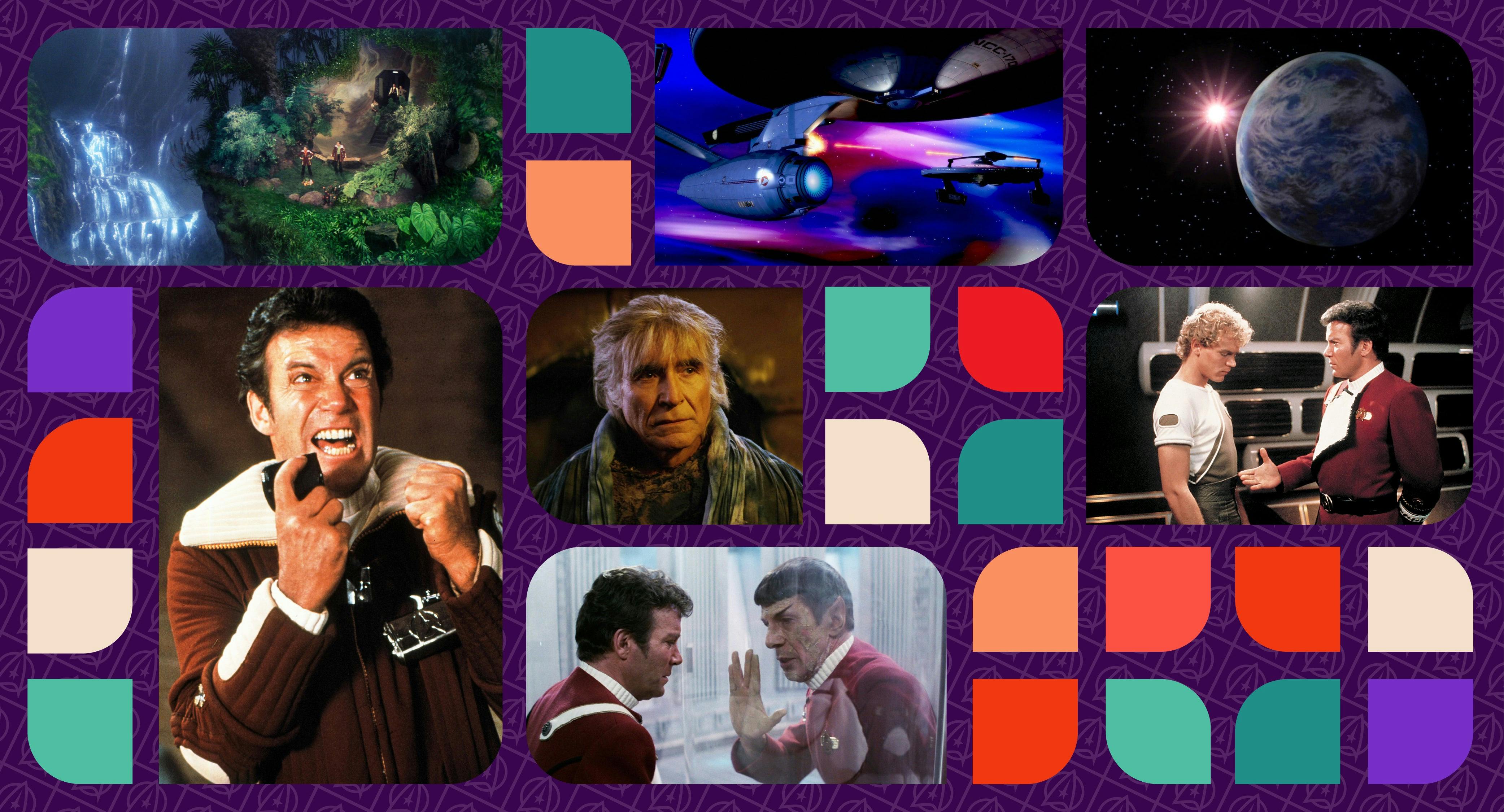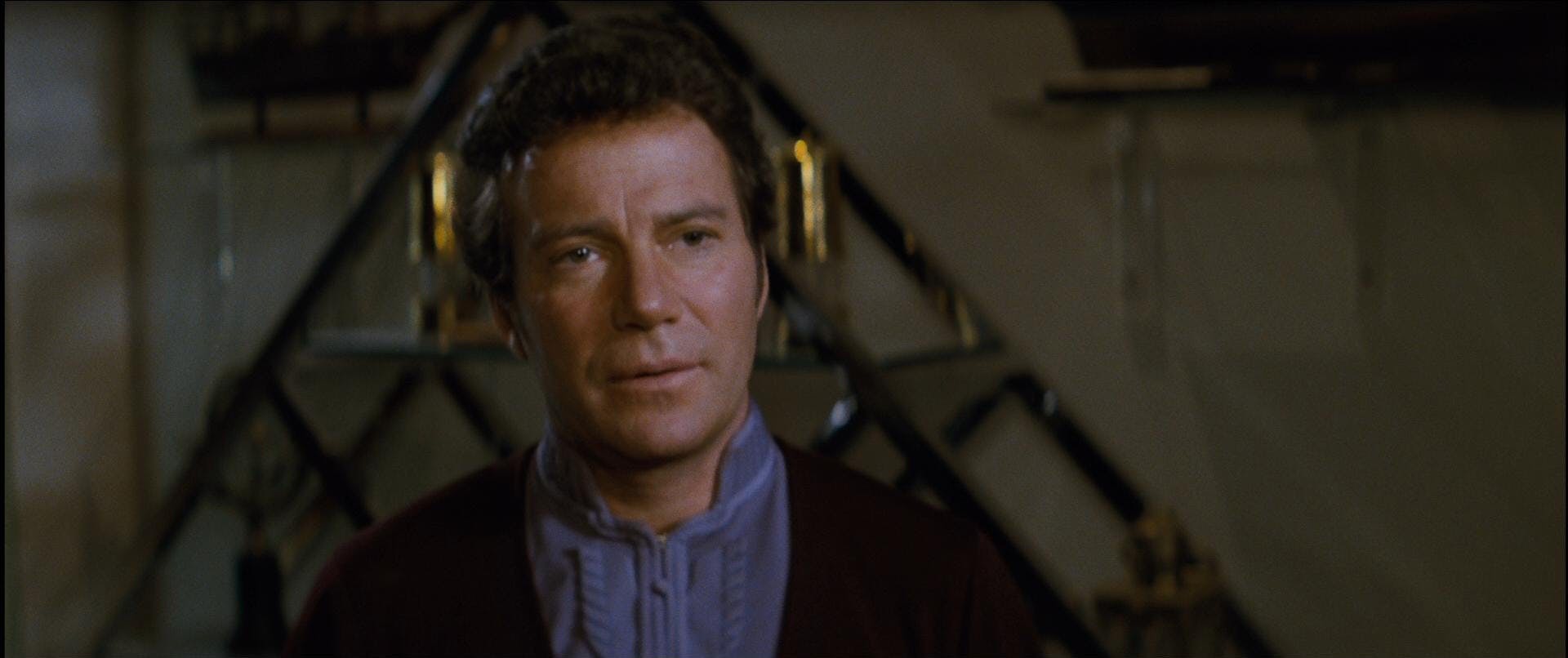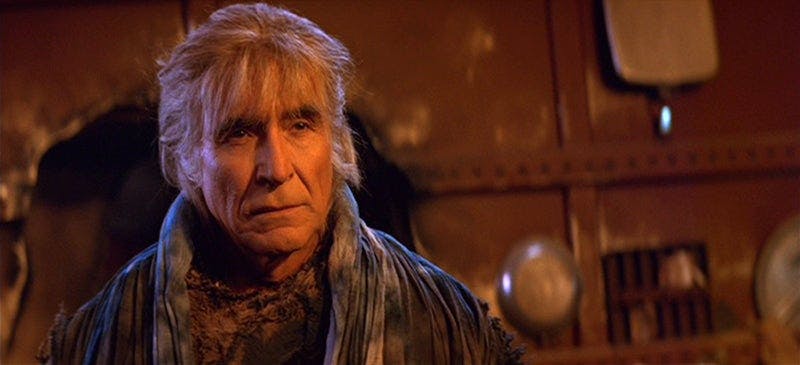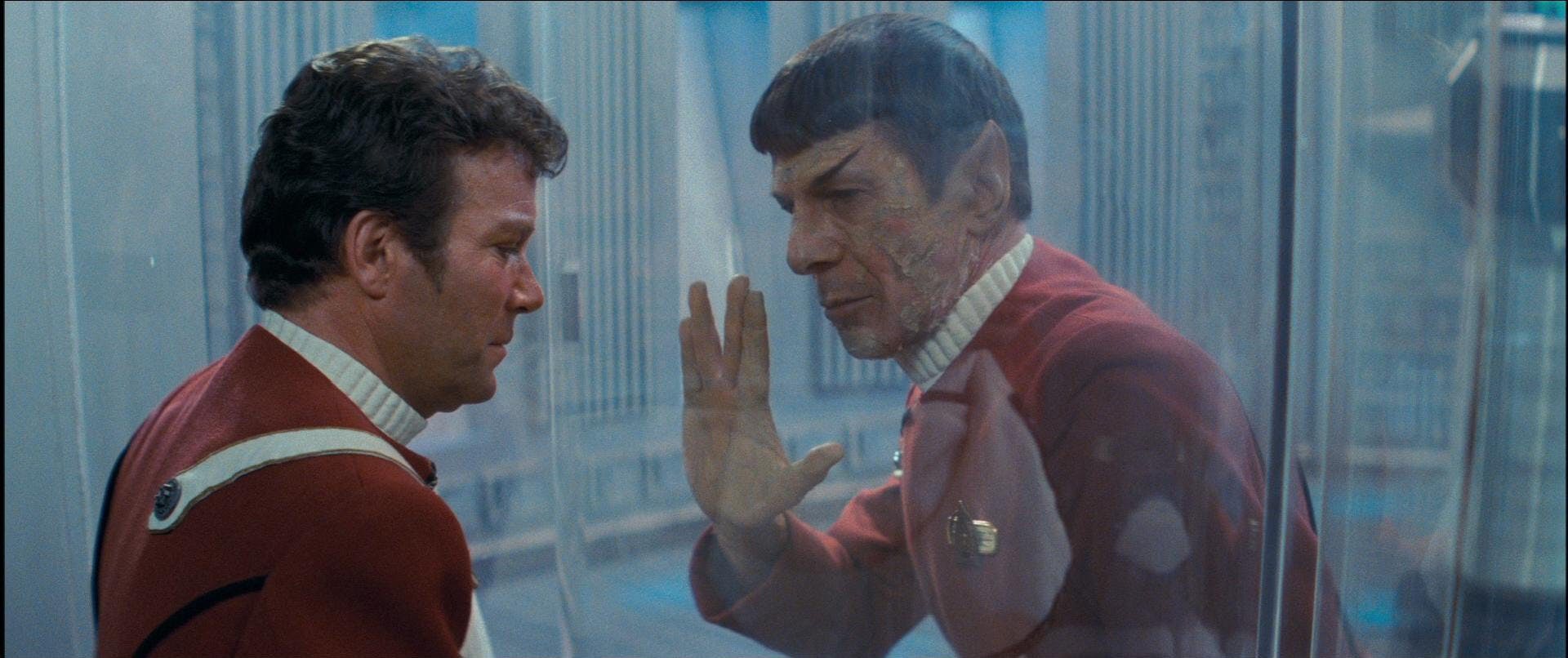Published Jul 11, 2022
How The Wrath of Khan Grew Up With a Fandom
A story about death gave the franchise a new life.

StarTrek.com
Star Trek stayed alive because of a movie about death. You can argue over the particulars (Star Trek fans love arguing over the particulars) of whether Trek would have continued if the second film hadn’t been a hit but, even 40 years on from its release, Star Trek II: The Wrath of Khan is still, perhaps, most famous for having “...the greatest death scene since Janet Leigh.” What helped Khan find its greatest success though – and why it continues to resonate – has less to do with the way it highlighted the mortality of the Enterprise crew (for whom death can be mutable) but the way it connected to our own.
Looking at where Star Trek was 40 years ago, it’s unsurprising that “the end” would’ve been near to everyone’s mind. While Star Trek, writ large, had demonstrated a staying power far beyond what had been suggested by the initial network TV run, the task of making the sequel to a troubled production that met with mixed success could’ve easily felt more like crafting an epilogue than a new chapter. The slashed budget probably also made it a lot harder to contemplate exploring strange new worlds.
No coincidence then that James Kirk should enter our story with diminished expectations. The brash starship captain has aged into a moody bureaucrat full of regrets and lacks the will to change. Today, this might be called “deconstructing the character.” At the time, it may have seemed less controversial — Kirk’s life wasn’t turning out the way he expected it would 15 years prior, and the audience was very much in the same boat.

StarTrek.com
We sometimes talk about Star Trek as outgrowing the ‘60s optimism. This is an oversimplification of both the period and the work. It’s safe to say our vision of the future wasn’t the same in the ‘80s, because of course it wasn’t. Every piece of fiction that is lucky enough to have a long life in the popular imagination runs into this. The world changes, and more importantly, so does the audience. For the former college kids who made up a good portion of the fanbase during the original run, reckoning with who they were in the ‘60s was about to become a Hollywood cottage industry. A film rooted in Kirk’s middle-aged ennui was very much of the zeitgeist (even if it comes with less rock music and more mind-controlling eels). In this way, a franchise sequel, perhaps the most refined form of nostalgia, took the bold step of meeting the audience in the moment. More daring still, it then took pains to undercut the notion that the solution to Kirk’s, or anyone else’s, problems lay in returning to what was.
A big part of that is the Khan of it all. In addition to being a perfect villain full stop, he arrives as the perfect villain for Kirk at this moment: a literal mistake from the past coming back to haunt him. He’s also an even more darkly exaggerated embodiment of a midlife crisis. The next time someone you know goes on about their glory days, just imagine Ricardo Montalban purring “...200 years ago, I was a prince,” and its toxic manifestations. What is his Melvillian need for vengeance if not an attempt to undo the past?

StarTrek.com
If Khan’s obsession isn’t enough to show the folly of trying to recapture the past, we also learn that Kirk’s history isn’t everything we thought it to be. Command of a starship might be his “best destiny,” but it came with a failed relationship and a son that views him with suspicion. It’s telling how this development, which might be seen as a major rewrite of a franchise hero, isn’t played as a revelation. Kirk’s “Is that David?” tells us that not only he has to ask, but that he hadn’t given much, if any, thought to the possibility that a reunion with the mother might involve meeting the son. Kirk, like us, was focused on other things.
That may be Wrath of Khan’s greatest trick. At heart, it’s still, like much of Star Trek, an adventure story. We want to see Kirk back in the captain’s chair waging space battle with Horatio Hornblower motifs, and Kirk wants it too because, it’s what he’s always wanted. Shouldn’t that be enough?
But death has a way of not caring what we want, and Wrath of Khan is still a movie about death. In one perspective, Spock’s death is just a way of taking what the story has done only symbolically up to this point and making it literal. All the meditations of aging, the refusals to accept loss or let go of the past, all of it is a table setting for a grim finality that no one can escape.

StarTrek.com
Like Kirk, we’ve been focusing on the wrong things. Losing what matters to us, whether it’s our youth or a trusted friend, may ultimately be out of our control, but “how we face death is at least as important as how we face life.” Kirk faces the death of both his friend and a vision of himself. Through this loss, he finds the connection to family he’d denied himself and passion for a life he thought extinguished. His final line, “I feel young,” is one of the most joyful moments in the history of cinema.
The future doesn’t need to be exactly as we imagined for us to find happiness in it. As a philosophy of life, it’s self-evident, but as mass entertainment, it’s almost subversive. Wrath of Khan delivers what the audience wanted and nudges them toward abandoning expectations. At a time when a week doesn’t go by without some corner of the internet flaring up about what Star Trek is or isn’t, Wrath of Khan is a reminder that the greatest success, for individuals and sci-fi franchises, comes in embracing change.
Owen Croak (he/him) is a writer and screenwriter living in Los Angeles. He loves science fiction in general and Star Trek in particular. Find him on Twitter @OwenCroak.

